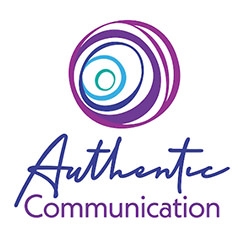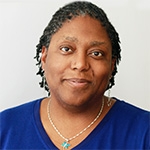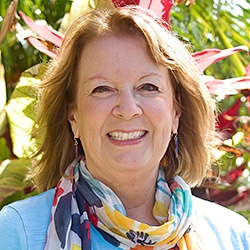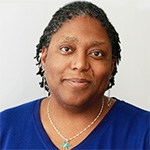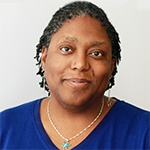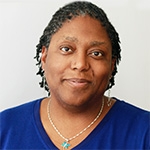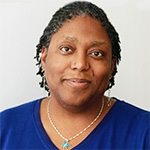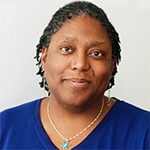
Search Results: bias
-
As human beings, our inherent goodness makes most of us believe in equality and yet sometimes our conviction in this same 'goodness' may make us blind to the reality of our own behavior. We are so convinced about the innocence of our intention that we seize to look at the impact of our behavior and thus our unconscious biases often go unexamined and unchallenged. Diversity, equity and inclusion work will only be of lip-service until we are willing to look at our own unconscious biases. Listen as Anisha Pandya encourages you to look at the possibility of how our self-awareness is so limited and one of the ways of expanding that awareness is by moving beyond our intention, looking at the impact of our behavior and remaining open to feedback.
-
Mindfulness is paying attention in a balanced and nonjudgmental way. To practice mindfulness is to uncover our own biases, revealing we less neutral and objective than we think. This takes great humility. Each time we become aware of our own unconscious biases and blind spots, our world expands. Read on for more about practices to help us see, and transform, our own biases.
-
-
-
-
With abundant evidence that most people have unconscious biases against people --even when that bias runs counter to their own values-- there's a strong chance you recreate this disconnect with people far more often than you recognize. So even with a high degree of NVC skills you may behave in a way that seems "NVC" but also reproduces the painful patterns that marginalized people all-too-often experience. Read on for ways to transform pitfalls of NVC into more reliable connection.
-
Why does NVC practice, and NVC training/coaching, appear to be not enough to bridge divides between people? This article takes a look at the trickle down effect of our societal conditioning, what we can add to our NVC lense, and what we can do "upstream" when NVC doesn't seem to be enough. Additionally, the article talks about unseen constraints that men, women and minority groups face in organizational settings...
-
Join Roxy Manning for a provocative fishbowl discussion about how privilege and lack of privilege affect people of color.
-
Join Dian Killian and Mary Mackenzie for a provocative fishbowl discussion about how privilege and lack of privilege affect women.
-
Join Alan Seid for a provocative fishbowl discussion about how privilege and lack of privilege affect men.
-
Join Jeff Brown for a provocative fishbowl discussion about how privilege and lack of privilege white people.
-
Finding your power in seemingly powerless situations doesn't mean denying what happened, your feelings, your needs, nor the behavior of others that didn't meet needs. It does mean reexamining those situations with the intention to compassionately look for your contribution and for clues to your hidden perceptual biases. Read on to learn about about finding these clues, and more.
-
Trainer Tip: We all see through our own filters. To disentangle what we hear from some is really saying, check using understanding requests at the level of detail you need. Course correct along the way. In a charged situation this can be critical to bringing in clarity, being heard and resolving differences amicably.
-
Want to increase diversity, plus improve group dynamics and group functioning? There are things you can do to make NVC settings more welcoming to people of color. Learn more about how to use NVC; attend to impact; help the community understand and demonstrate more awareness; factor in historical context; engage; create a more inclusive climate; and more!
-
Understanding how our brains operate in relation to power, privilege and status is important if we wish to build a world that works for all. This article gives an overview of the brain tendencies we have in relationship to groups, and provides remedies to counteract the automatic labor-saving devices of our human brains (which often prevent us from seeing the fullness of others, and our own, humanity).
-
Amidst racial violence, there are things that NVC can offer. And there are places where NVC culture needs to be more vigilant. Here are examples of where, amidst incredible loss and pain, "allies" and communities commonly (and often unknowingly) create false equivalences, minimization and re-injure those who've been historically marginalized -- even when they offer empathy, or aim to stay "safe". Read on to cultivate greater understanding and ways to respond differently.
-
The existing unequal risks and impacts people of certain race, class and identities face in society is magnified in these strenuous times -- especially with things such as illness, financial well being, discrimination, attacks, and death. As responsive NVC practitioners we can stand in solidarity with those who are differentially impacted. Read on for this, and additional ways to spot common pitfalls of doing so.
-
In a workshop, a hesitant white neurodivergent man faced a triggering reaction from a Global Majority transgender man. Uncovering their backgrounds, the facilitator addressed family dynamics and exclusion. A repair exercise fostered empathy, challenging assumptions and emphasizing the importance of equitable facilitation for a richer group experience.
-
There are times when someone judges us, or meets us with prejudice, and its easier for us to respond by hating them, or judging ourselves as not good enough. How can we love another person instead without excusing their actions? Roxy tells us her story with wonderment, grief and mourning.
-
When we're on the receiving end of pain-stimulating assumptions, a microaggression, or prejudice --when we're reactive and resultingly have self-doubt, guilt or shame in ourselves-- is it possible to be intensely authentic while holding care for everyone in the situation? Can we effectively do this even as a third party witnesses to these things? Self-empathy, empathy, and a commitment to authenticity have become essential tools I need to keep sharpened in my toolbox if I am to show up and do the work I value in this world.

